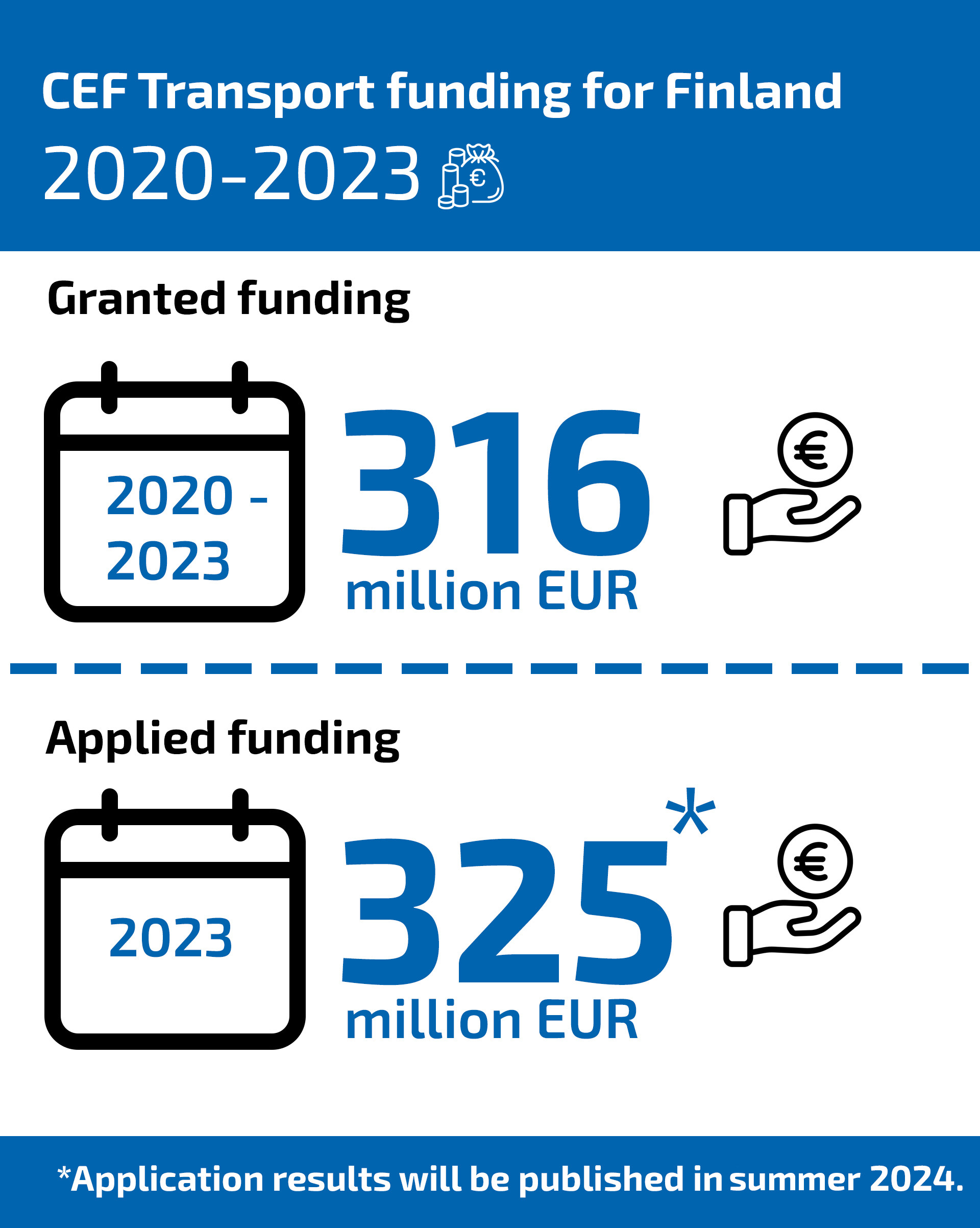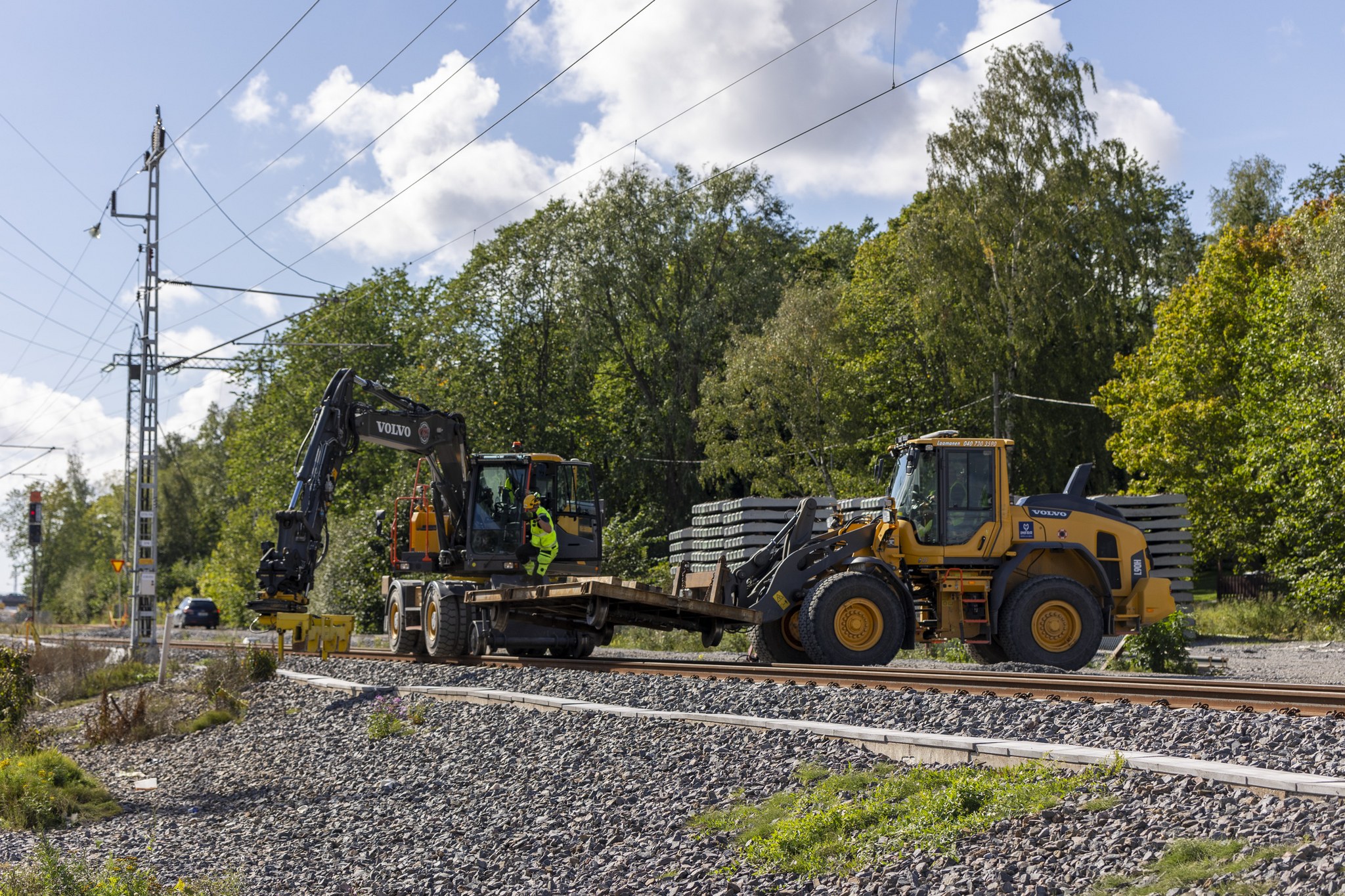Photo: The construction of the Kupittaa-Turku double track is one of the transport infrastructure projects receiving support from CEF Transport.
The European Union's Connecting Europe Facility CEF finances projects in the trans-European transport network. CEF programmes exist for transport, energy and digital infrastructure. CEF Transport consist of four categories. Finland can submit applications for three of the categories: general, military mobility, and alternative transport fuels infrastructure.
The Commission determines which projects are eligible for the funding. Potential criteria can include climate impacts or the socio-economic profitability of a project. Projects should not be selected just by their eligibility for CEF funding; they have to be actually necessary.
“The Member State has to be prepared to make a significant investment in the project, since funding from general applications covers 30% of construction costs and 50% of planning expenses. You can’t fund any transport infrastructure with the CEF funding alone”, says Inna Berg, Senior Advisor on CEF at the Finnish Transport Infrastructure Agency.
Over the past ten years, Finland has received more than EUR 500 million in CEF Transport funding. The majority of the funding, some EUR 300 million, was received over four years in the latter half of CEF1 Transport and during CEF2, which is ongoing from 2021 to 2027. More information on the projects and the funding received during CEF1 and CEF2 is available on the Finnish Transport Infrastructure Agency website.

Finland does well in transport funding applications
In the current CEF2 programming period 2021–2027, Finland has already received a total of EUR 239 million in support for 31 projects. The period is still ongoing, so the amount of received funding is likely to grow.
“Over 80%, or EUR 192 million, were received thanks to applications submitted by the Finnish Transport Infrastructure Agency to fund both the state and partners”, says Berg.
Funded projects include the construction of phase 2 of Helsinki-Riihimäki and the Kupittaa-Turku double track. Finland is also the only country in Europe to receive support for the construction of a port road connection, the Poikkimaantie road in Oulu.
Support for military mobility brought new opportunities
During the current CEF2 programme period, there has been the option of applying for support for military mobility projects. So far, Finland has received approximately EUR 74 million in funding for such projects. In military mobility projects, the criteria are slightly different from those of other categories of CEF Transport, and the funding always covers 50%.
The support for military mobility has also enabled receiving funding for several road projects. For climate reasons, CEF Traffic support has focused on railway and waterway projects.
“Support for military mobility can even be granted for projects that are less profitable from a socio-economic point of view but important for something like security of supply”, says Esa Suoyrjö, expert in EU affairs at the Finnish Transport Infrastructure Agency.”
Finland has been successful in applying for military support.
“The key to our success has been excellent cooperation between the transport administration and the defence administration. Our other stakeholders have also been closely involved in brainstorming projects. It has allowed us to discover the best projects for funding applications that benefit not only military mobility but also regular transport”, says Suoyrjö.
The projects for military support have been focused in Northern Finland and around the Bothnian Arc.
Awaiting application results in the summer
The results of the general applications for 2023 will be published in July 2024. Finland has applied for a record of EUR 325 million for 21 transport projects. Competition for funding is tight.
“We have put a lot of effort into these applications. With its partners, the Finnish Transport Infrastructure Agency is applying for nearly EUR 110 million for 11 projects, the largest sum being for the construction of the Espoo City Rail Link. Now we just have to wait and see how much our work bears fruit. I hope that Finland does well in this round of applications, too”, Berg says.
The current period of CEF Transport will end in 2027, but there are no open calls for infrastructure projects in sight, as the Commission has reported that it has used up its budget for the programming period.
Time will tell what opportunities the European Union will offer in the future for transport funding.

